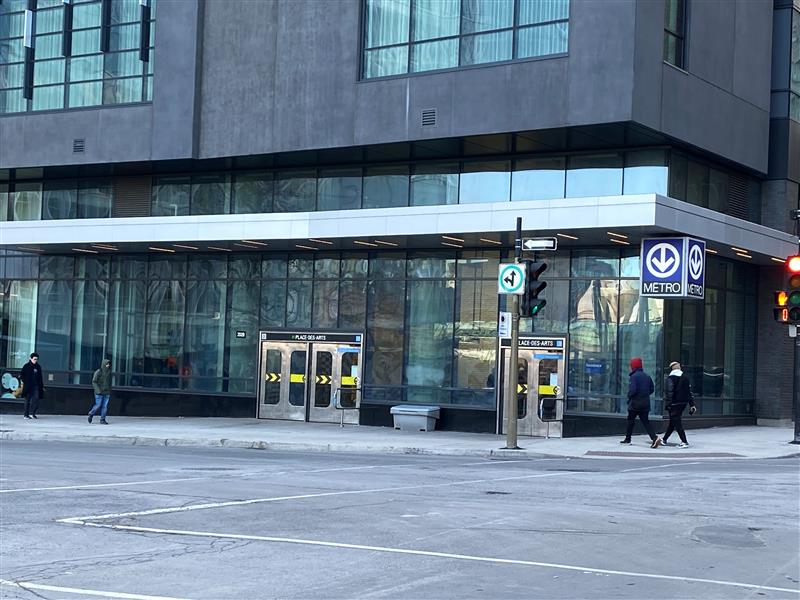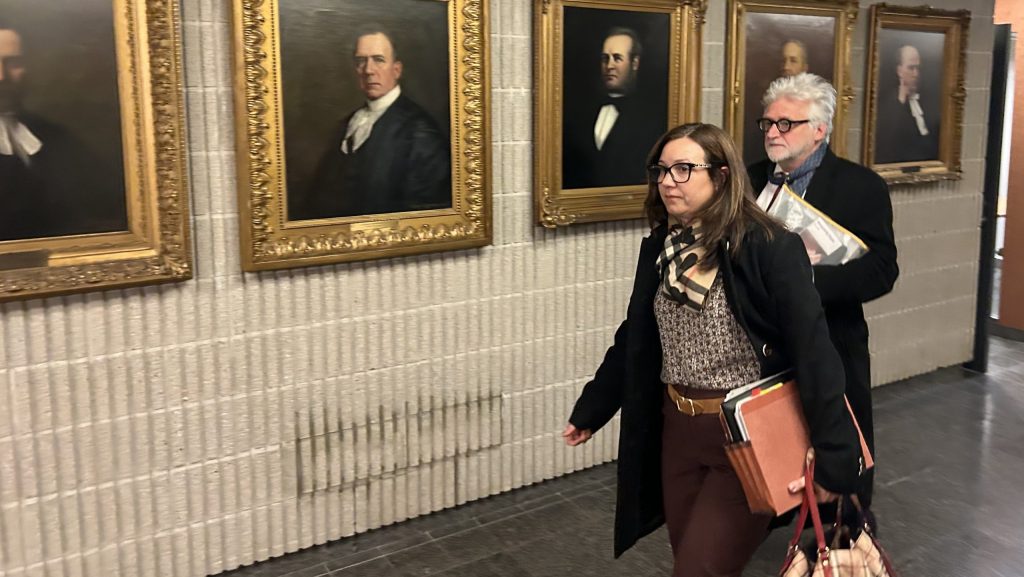Quebec health minister urging non-urgent cases not to visit ERs
Posted December 19, 2023 9:19 am.
Last Updated December 20, 2023 1:31 pm.
Health Minister Christian Dubé is asking for Quebecers’ help to relieve the province’s hospital emergency rooms.
At a press conference Tuesday afternoon, Dubé asked people whose condition does not require urgent care not to visit the ER.
Dubé says family medicine or specialized nurse practitioner clinics are an alternative option, as well as pharmacies.
He also pointed to the 8-1-1 line to speak to a nurse and even get an appointment at a clinic.
Dubé re-launched his crisis unit: “a small group” of experts called to draw up a list of best practices to be deployed in the entire health network.
The president of the Association of Emergency Medicine Specialists of Quebec and emergency physician at the Montreal Heart Institute, Dr. Gilbert Boucher, welcomed the return of this committee. He specified that discussions will take place every week for the next 10 weeks.
Dubé was accompanied at the press conference by Boucher and the national director of public health Dr. Luc Boileau.

ER occupancy rates
The stretcher occupancy rate exceeded 125 per cent in several hospitals in the province on Tuesday morning, according to Index Santé.
In Montreal, the average occupancy rate of hospitals was 140 per cent. At the Royal Victoria Hospital, 209 per cent of stretchers were occupied.
Laval’s only hospital, Cité-de-la-Santé, was at 167 per cent capacity on Tuesday morning.
In the Montérégie, hospitals on average at 144 per cent capacity. Suroît Regional Hospital in Salaberry-de-Valleyfield, west of Montreal, was at 191 per cent.
The Regroupement des chefs d’urgence du Québec questioned the minister last weekend about the situation which “has deteriorated dramatically” and which has become “out of control” in the emergency rooms of the province’s hospitals.
In a letter, the group decried the “inactivity” of the government while “the crisis is only getting worse.”

Patients waiting 24-48 hours in ER: nurse
MUHC nurse Naveed Hussain is calling the situation “quite extreme.”
Cases of RSV, COVID, flu are jamming up the emergencies throughout the island of Montreal and also Quebec. What we’ve seen is delays for people who have broken bones, people who might have to be having chest pains and end up having heart attacks in stretchers and corridors.
“So it’s quite dangerous. And nurses are battling right now, making sure that patients receive the best care possible, but it’s becoming quite difficult because overcrowding is a danger to patients. And as hard as nurses work, we can’t see everything.”

Hussain says patients who would usually be seen within eight to 10 hours are now waiting 24-48 hours for the same care.
“We are not able to send patients up as quickly as possible to the units,” he said. “And that causes a staggering amount of people who are suffering. What we’re seeing is patients are suffering in hospitals throughout the Island of Montreal in Quebec. And people who are struggling to breathe, people who might be having heart conditions are not getting the prioritized care that they deserve. That’s what we’re seeing.”
The health minister says the Quebec government has several measures to address overcrowding in ERs. One of them has been to purchase beds in other facilities to free up hospital beds for ER patients.
“We bought about 200 and we’re in the process of adding another 300,” said Dubé. “500 places makes a big difference, especially in the Montreal area, what I call the Greater Montreal area.”
However, as bad as overcrowding in ERs is now, it could get worse. The health ministry is predicting that cases of COVID-19 and flu will significantly rise in the coming weeks.
“We have a lot of vulnerable people that come because of influenza or because of COVID and they should have been vaccinated. I think that the situation over the next few weeks will deteriorate. Let’s be clear about that,” explained Dubé.
End of at-home doctor visits
Paul Brunet, an advocate for patients’ rights, says the figures are at a 25-year high.
“It is a catastrophe,” he said. “I’ve never seen such a record high of people waiting at emergency ward, waiting to be operated, waiting for home care, waiting for a bed in long-term facility.”
Brunet, who’s the chair of the Quebec Council for the Protection of Patients, says there are multiple factors at play, including the post-pandemic migration of health-care employees from the public sector to the private one.
Another one, he says, is due to a societal shift that happened about 50 years ago in North America.
“In the ’60s, the ’70s, doctors started to specialize themselves in emergency care and emergency wards, leaving and abandoning by that the home care that we’re delivering before,” Brunet told CityNews. “And guess what? That’s when, more or less, the crowding of emergency wards started.
“So without visiting patients, kids, elders at home, when we used to do that for many, many years, well, then we stopped doing that and waited for them when they were very sick to get to the emergency ward. And now we’re complaining, there’s lacking beds, there’s so many people.”
–With files from Gareth Madoc-Jones








